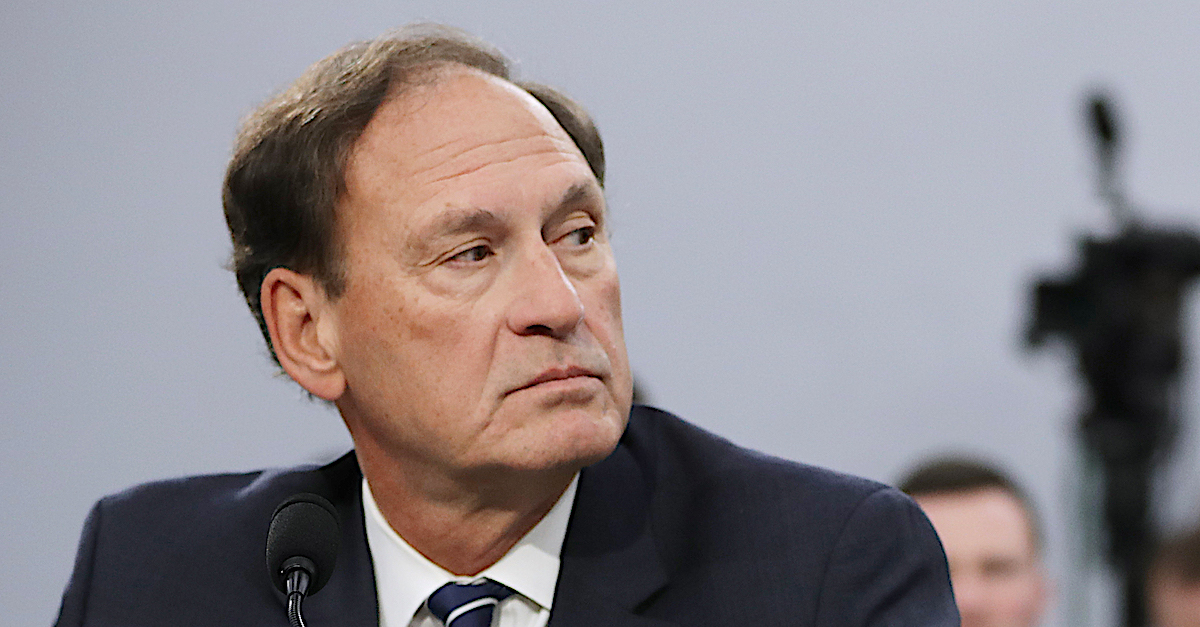
Every justice on the Supreme Court ruled against the City of Philadelphia Thursday, holding that the city violated the Free Exercise Clause of the First Amendment by refusing to contract with a Catholic foster care agency that refused to approve same-sex couples as foster parents
The majority decision in Fulton v. Philadelphia was authored by Chief Justice John Roberts, who ruled that Catholic Social Services (CSS) was unacceptably burdened by Philadelphia’s refusal to contract with it. Philadelphia’s actions forced CSS to choose between violating its own religious beliefs by certifying same-sex couples as foster parents or abandon its mission to provide children in need with foster homes.
Roberts’ 14-page decision, however, was dwarfed by Justice Samuel Alito‘s 77-page concurrence, which urged a far broader ruling than the one actually handed down in Fulton.
Right out of the gate, Alito revealed his hand, saying that the case presented an opportunity to address a matter that “urgently calls out for review.” According to the conservative justice, as well as Clarence Thomas and Neil Gorsuch (who joined the concurrence), that pressing matter is whether the Court’s precedent in a landmark religious freedom case should be overturned.
Over scores of pages, Alito hammered his point: the Free Exercise Clause demands more protection for religion against government than case law currently demands. Laws that interfere with religious beliefs should be understood as violating guarantees of religious freedom even when those laws are completely neutral and are not specifically aimed at religious practices, Alito argued.
Alito’s concurrence focused primarily on the Court’s 1990 decision in Employment Division, Department of Human Resources of Ore v. Smith. In that case, SCOTUS held that states need not excuse individuals from complying with state law as on the grounds of religious freedom. The Court back then reviewed an Oregon state law which prohibited the use of peyote. Individuals who used the drug during a religious ritual claimed to be exempt from the law due to the Constitutional guarantee of religious freedom. The late conservative Justice Antonin Scalia penned the majority decision which held that because the peyote prohibition was “neutral law of general applicability,” and in no way targeted any religious group, Oregon was under no obligation to accommodate individuals seeking religious exemptions from the statute.
The Smith rule, which looks to the purpose rather than the effect of the law, is overripe for a revamp, Justice Alito wrote. His concurrence launched into a parade of horribles, hypothesizing a world in which everything from halal meat to the wearing of yarmulkes in court is illegal. Forcing a Catholic agency to operate in a way that is antithetical to its beliefs would, Alito reasoned, would surely erode religious freedom beyond what the founders intended.
Alito also assured his readers that what he’s proposing wouldn’t amount to real discrimination in a manner that would actually harm families. “As far as the record reflects,” he noted, “no same-sex couple has ever approached CSS, but if that were to occur, CSS would simply refer the couple to another agency that is happy to provide that service—and there are at least 27 such agencies in Philadelphia.” No harm done, the justice argued.
On the flip side, lamented Alito, Philadelphia’s short-sighted policy to stop placing children with CSS was harmful. Not only were children deprived of the potential homes CSS might provide, but homes that had been previously vetted by CSS were now prohibited too. As a result, “Sharonell Fulton and Toni Lynn Simms-Busch are blocked from providing loving homes for children they were eager to help.”
Despite Alito’s concurrence ostensibly agreeing with the majority’s holding, the justice had harsh words for the majority: by refusing to revisit Smith in the Fulton decision, he said the Court is simply kicking the can on a dispute that is bound to come up again in no time.
“This decision might as well be written on the dissolving paper sold in magic shops,” wrote Alito. “Not only is the Court’s decision unlikely to resolve the present dispute, it provides no guidance regarding similar controversies in other jurisdictions.”
The narrowness of the majority’s holding, however, may have been precisely the point. Some legal experts have opined that Alito’s lengthy concurrence might have been originally intended as the majority’s decision; they theorize that Alito’s quest to overrule Smith might have been too extreme for some of the justices.
Attorney Max Kennerly commented on Twitter that Justices Amy Coney Barrett and Brett Kavanaugh might have been convinced to join the majority opinion by its more limited scope.
Alito voiced some displeasure with Barrett in a footnote, accusing her of making baseless claims about the legal history of religious freedom:
JUSTICE BARRETT makes the surprising claim that “[a] longstanding tenet of our free exercise jurisprudence” that “pre-dates” Smith is “that a law burdening religious exercise must satisfy strict scrutiny if it gives government officials discretion to grant individualized exemptions.” If there really were such a “longstanding [pre-Smith] tenet,” one would expect to find cases stating that rule, but JUSTICE BARRETT does not cite even one such case.
Barrett clerked for Scalia, the author of Smith, and did not join Alito’s call to overrule Smith.
Although the majority ruled in favor of CSS in the Fulton case, the ruling was limited, and it did not dismantle the Smith rule as Alito would have chosen. Calling Smith a “methodological outlier,” Alito wrote that the case “ignored the ‘normal and ordinary’ meaning of the constitutional text” — an error that should have been corrected by the majority in the current case.
“Multiple factors strongly favor overruling Smith,” Alito concurred. “Are there countervailing factors?” he asked, before answering, “None is apparent.”
[image via Chip Somodevilla/Getty Images]